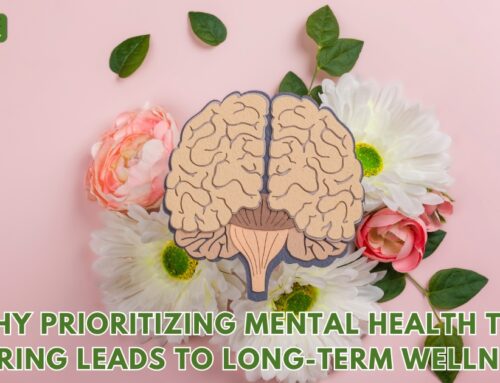How to Support a Loved One Struggling with Depression – A Comprehensive Guide
Supporting a loved one with depression can feel overwhelming, especially if you’re unsure how to help or what to say. Depression is a complex and often invisible illness, but your support can make a real difference in someone’s journey to recovery. Here’s a comprehensive guide to help you provide the most effective, compassionate support for a loved one battling depression.
1. Educate Yourself About Depression
- Understand the Symptoms: Depression can manifest in many ways, from sadness and irritability to fatigue and withdrawal from daily activities. Recognizing these signs helps you understand what your loved one is going through.
- Avoid Assumptions: Every person’s experience with depression is unique, so try not to make assumptions about how they feel or how they should act.
- Learn What Depression Is—and Isn’t: Depression is a medical condition, not a sign of weakness or a choice. Knowing this can help you offer non-judgmental support.
2. Listen Without Judgement
- Practice Active Listening: Show that you’re listening by maintaining eye contact, nodding, and summarizing their words to ensure you understand.
- Avoid Minimizing Their Feelings: Phrases like “You just need to think positively” or “Everyone gets sad sometimes” can feel dismissive. Instead, acknowledge their pain, even if you don’t fully understand it.
- Encourage Open Communication: Let them know that you’re available to talk whenever they’re ready. Sometimes, just knowing they have someone to turn to can be incredibly reassuring.
3. Be Patient and Understanding
- Respect Their Pace: Healing from depression takes time. Avoid pushing them to get better quickly, as this can add pressure and make them feel like a burden.
- Accept Good Days and Bad Days: Recovery is rarely linear. There may be setbacks, and it’s essential to remain supportive on both good and bad days.
- Manage Your Own Expectations: It’s natural to want your loved one to get better, but try not to let frustration or impatience show. They may already feel guilty about their struggle and need your steady support.
4. Offer Practical Support
- Assist with Daily Tasks: Depression can make even simple tasks feel overwhelming. Offering to help with groceries, cooking, or cleaning can provide relief and show that you care.
- Encourage Healthy Habits: Gently suggest activities like going for a walk or cooking a meal together. These can boost mood and make your loved one feel a little better without feeling forced.
- Help Them Find Professional Support: If they’re open to it, help them research therapists or counseling services. You can even offer to help with scheduling or accompany them to appointments if they’re comfortable.
5. Respect Their Boundaries
- Know When to Step Back: Sometimes, your loved one may need space to process their emotions alone. Respecting their boundaries shows that you value their autonomy and understand their needs.
- Don’t Take It Personally: Depression can cause people to withdraw, cancel plans, or avoid socializing. Understand that these actions are a part of their illness, not a reflection of how they feel about you.
- Be Supportive Without Being Overbearing: Let them know you’re there for them without pushing them to talk or engage when they’re not ready.
6. Encourage Them to Seek Professional Help
- Share Resources: If they’re open to it, share information about counselors, support groups, or online resources that could be beneficial.
- Be Patient with the Process: Therapy and medication can take time to show results, and there may be trial and error with treatments. Offer encouragement, and remind them that it’s okay to seek support and prioritize their mental health.
- Normalize Therapy: Remind them that many people see therapists for a range of reasons and that reaching out for help is a sign of strength, not weakness.
7. Take Care of Yourself
- Set Boundaries for Your Well-Being: Supporting someone with depression can be emotionally taxing. Don’t be afraid to set boundaries or take time for self-care.
- Seek Support for Yourself: Consider speaking with a counselor, joining a support group, or talking to others in similar situations. It’s essential to have a space to process your own emotions.
- Remember You Can’t “Fix” Them: As much as you want to help, understand that your loved one’s healing journey is ultimately their own. Your role is to support, not to cure.
Conclusion
Supporting a loved one through depression requires empathy, patience, and understanding. While it may not always be easy, your presence and encouragement can be incredibly powerful. By listening, respecting their boundaries, encouraging professional help, and taking care of your own well-being, you can be a pillar of strength in their journey toward recovery. At WoCounseling-Recovery.com, we’re here to support you and your loved ones on this path, reminding you that no one has to face this journey alone.
CONTACT US IF YOU NEED HELP:





